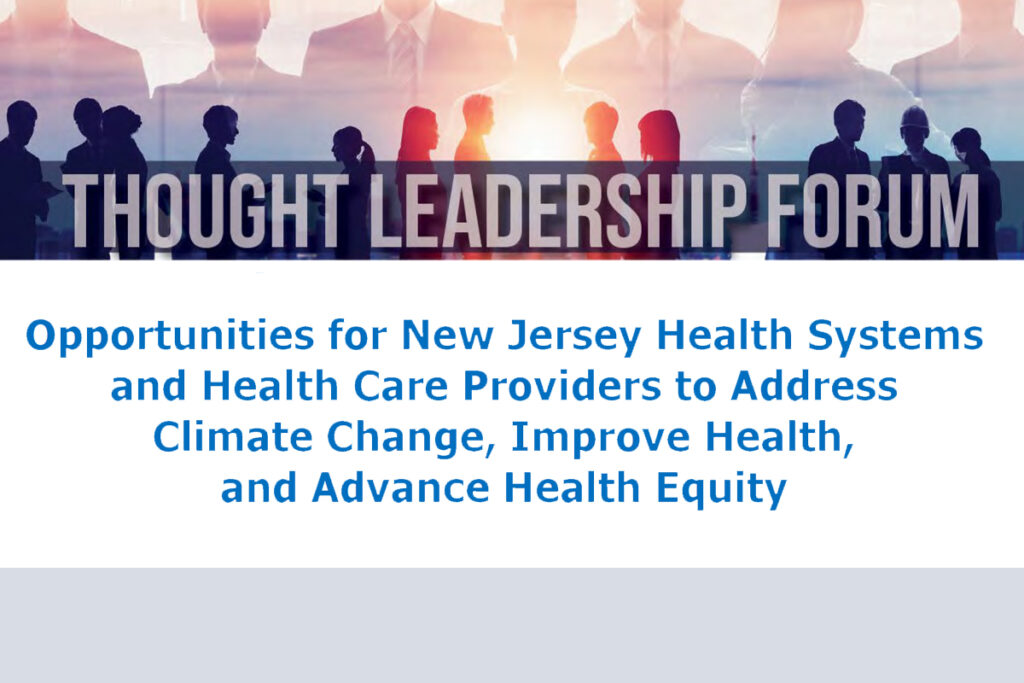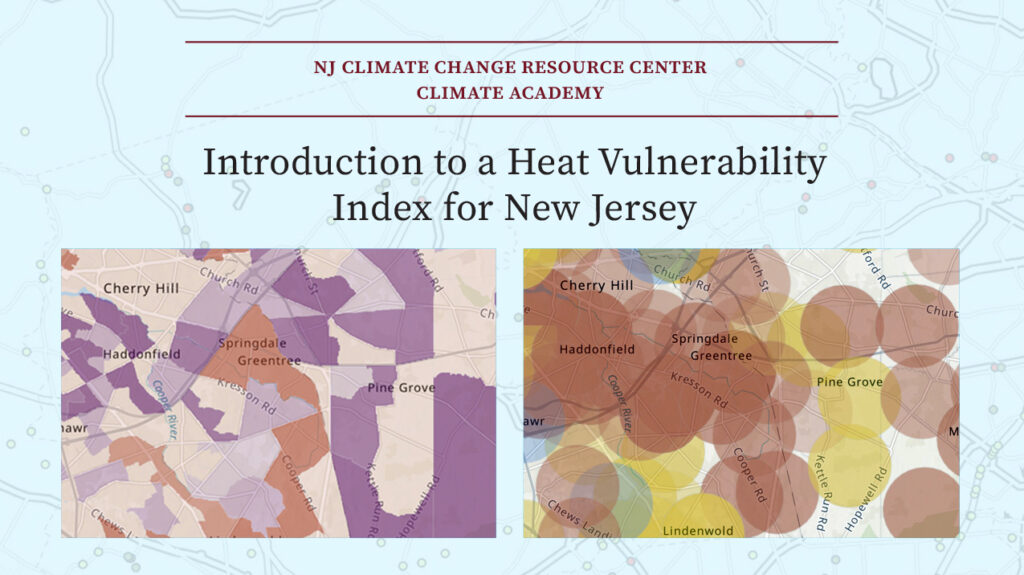CONFERENCES & WEBINARS
CLIMATE ACADEMY: Harmful Algal Blooms
Climate change will have a major impact on both aquatic ecosystems. Among these impacts is the potential for more harmful algal blooms (HABs). HABs occur when algae (plant-like organisms) grow out of control and produce toxins that are harmful to people, fish, birds, and other organisms in the local environment.
Join the following members of the NJ Department of Environmental Protection, Statewide HAB Expert Team, and Watershed Institute as they discuss the relationship between HABs in freshwater and climate change, as well as how municipalities and residents can work to address and manage these damaging events:
• Eugene Chebra, N.J.P.E., is Assistant Director of the NJ Department of Environmental Protection. Gene is responsible for administering and managing the New Jersey Environmental Infrastructure Financing Program (N.J.E.I.F.P.) or Water Bank. In partnership with the New Jersey Infrastructure Bank, the N.J.E.I.F.P. awards low-cost financing to qualifying applicants for the construction of critical environmental infrastructure projects such as wastewater collection, conveyance, and treatment facilities; combined sewer overflow reduction, and stormwater and other nonpoint source pollution abatement projects; potable water conveyance and treatment facilities and lead service line replacement projects. To date, over $9 Billion has been awarded through this highly successful program, not only improving the environment of New Jersey but creating thousands of jobs as well.
• Gabriel Mahon, is currently a licensed professional engineer in both Pennsylvania and Delaware. He spent the first 12 years of his professional career working in the NJDEP Division of Land Use Regulation as an environmental engineer responsible for reviewing the engineering aspects of Land Use Regulation applications to ensure compliance with the Flood Hazard Area Control Act Rules, Coastal Zone Management Rules, Stormwater Management rules, and Freshwater Wetlands Protection Act Rules. He spent the next 4 years working in the NJDEP Division of Water Quality, where he eventually became the Bureau Chief of the Bureau of Nonpoint Pollution Control (BNPC). With the Department’s watershed based re-imagining, he now works as the Bureau Chief of the Bureau of NJPDES Stormwater Permitting and Water Quality Management in the newly created Division of Watershed Protection and Restoration, where he is responsible for managing the Water Quality Management Planning Program, the NJPDES Industrial Stormwater Permitting Program, the Municipal Stormwater Regulation Program, which includes the Stormwater Management rules (N.J.A.C. 7:8) and the NJPDES Municipal Separate Storm Sewer System (MS4) Permitting Program.
Robert Newby, Ph.D. is a Research Microbiologist with the NJDEP’s Division of Science and Research. Rob joined NJDEP in 2017 and has worked on several critical environmental microbiology projects for the State. Rob’s primary research focus at NJDEP has been on characterizing and analyzing the dynamics and driving factors of freshwater cyanobacterial harmful algal blooms. Rob has served on many NJDEP led HAB expert panels, served as co-chair of the Management Practices section on the upcoming ITRC Harmful Cyanobacteria Bloom document, and serves as one of the state representatives to EPA RACT for HABs. Outside of HABs, Rob maintains an active research interest in several emerging microbial concerns, including SARS-CoV-2 environmental fate, Legionella spp. colonization and detection in drinking water and molecular technologies to help rapidly detect and profile endangered and invasive species.
Victor Poretti is the Section Chief for the NJDEP Bureau of Freshwater and Biological Monitoring, where he oversees the sampling and analysis of freshwater monitoring throughout the State. The Bureau provides data and information to serve as a sound scientific foundation for water resource management and meet federal Clean Water Act requirements. The Bureau also performs all aspects of NJ’s Cyanobacterial Harmful Algal Blooms (HABs) freshwater response, including strategy development, sampling, and analysis, and communicating data and alerts to the public.
Stephen J. Souza, Ph.D., is the Owner of Clean Waters Consulting, LLC. He is also the Founding Partner of Princeton Hydro, LLC. From its inception in 1998 through 2018, he served as President of Princeton Hydro, retiring from the company in 2019. Over the past 35 years he has dedicated his career to the management and restoration of aquatic ecosystems, in particular lakes, ponds and reservoirs. Dr. Souza has served as an instructor and course coordinator for the Rutgers NJAES Office of Continuing Professional Education and for continuing studies at Monclair College. He is also an Adjunct Professor at Temple University. Dr. Souza is a past president of the North American Lake Management Society (NALMS) as well as the Pennsylvania Lake Management Society (PALMS) and he serves on the Board of Trustees of the Association of New Jersey Environmental Commissions.
Steven Tuorto, Ph.D., is Director of Science and Stewardship at The Watershed Institute based in Pennington, New Jersey. Steve works to promote stewardship of our natural resources through science, education, and advocacy, works closely in partnership with k-12 schools and universities, as well as local, state, and federal agencies to achieve goals; and is involved in the assessment of environmental health and planning and implementation of restoration work with a focus on stormwater and Green Infrastructure. Previously, he was senior R&D scientist at Terra Cycle.
View More

NJ Nature-Based Solutions for a Changing Climate
State of the Climate: New Jersey 2024
Sustaining Innovation in New Jersey Climate Policy
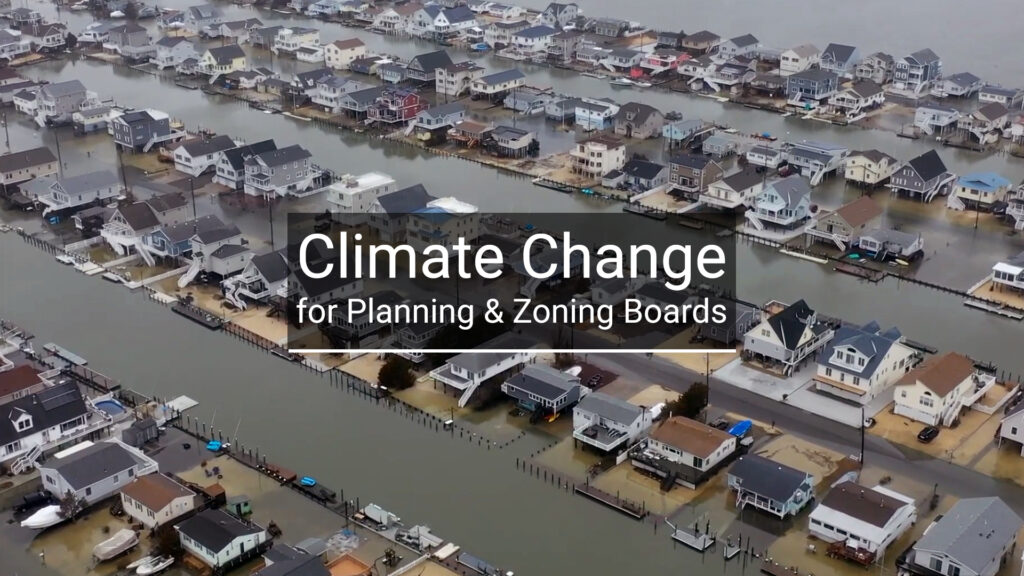
Climate Change for Planning & Zoning Boards
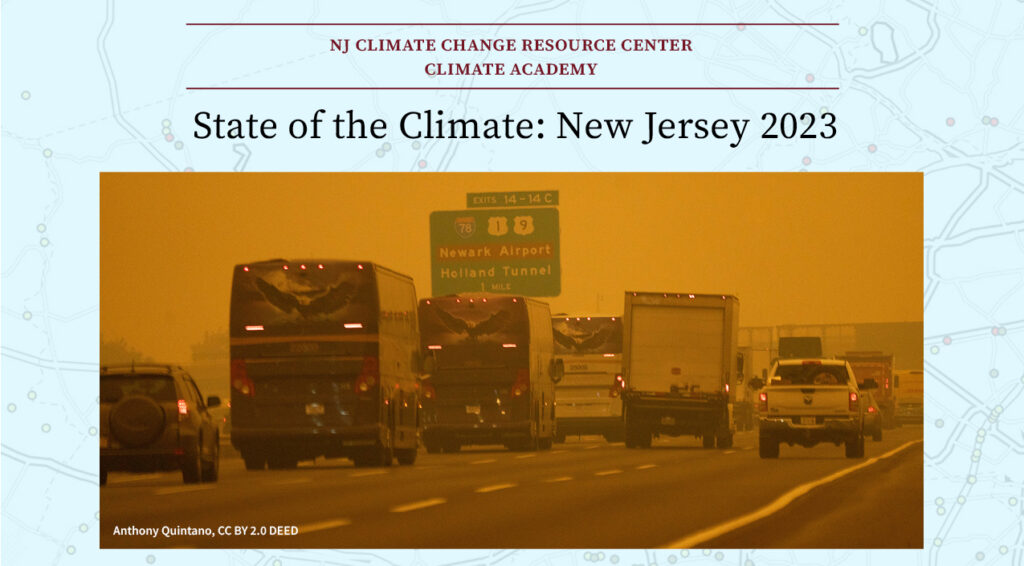
State of the Climate: New Jersey 2023
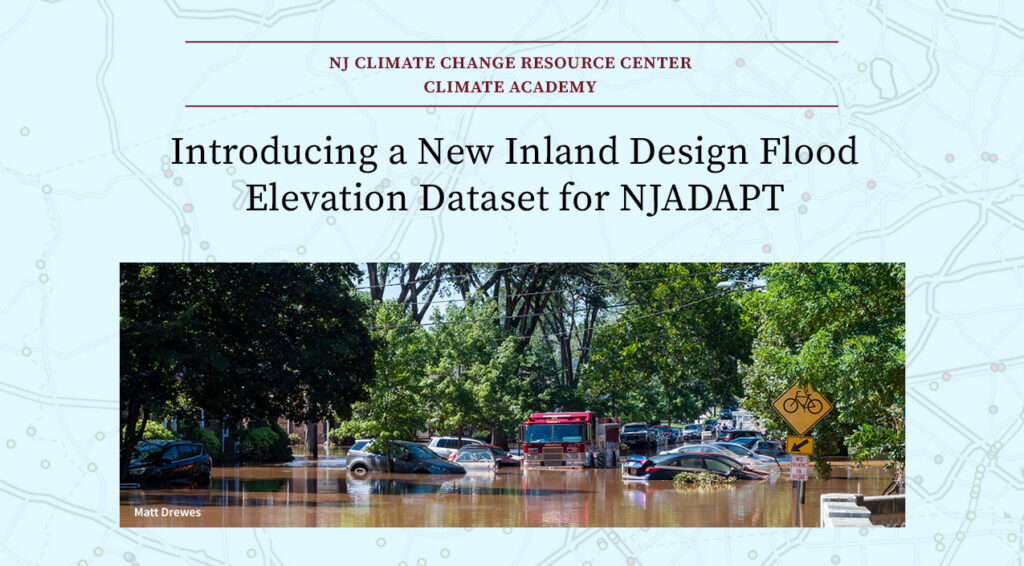
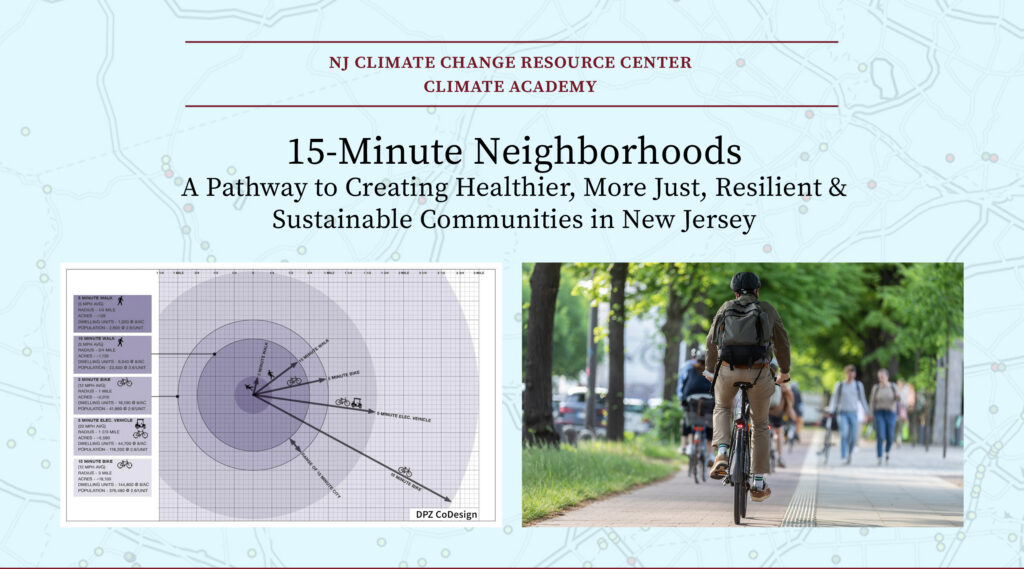
NJADAPT: New Tools and Critical Enhancements
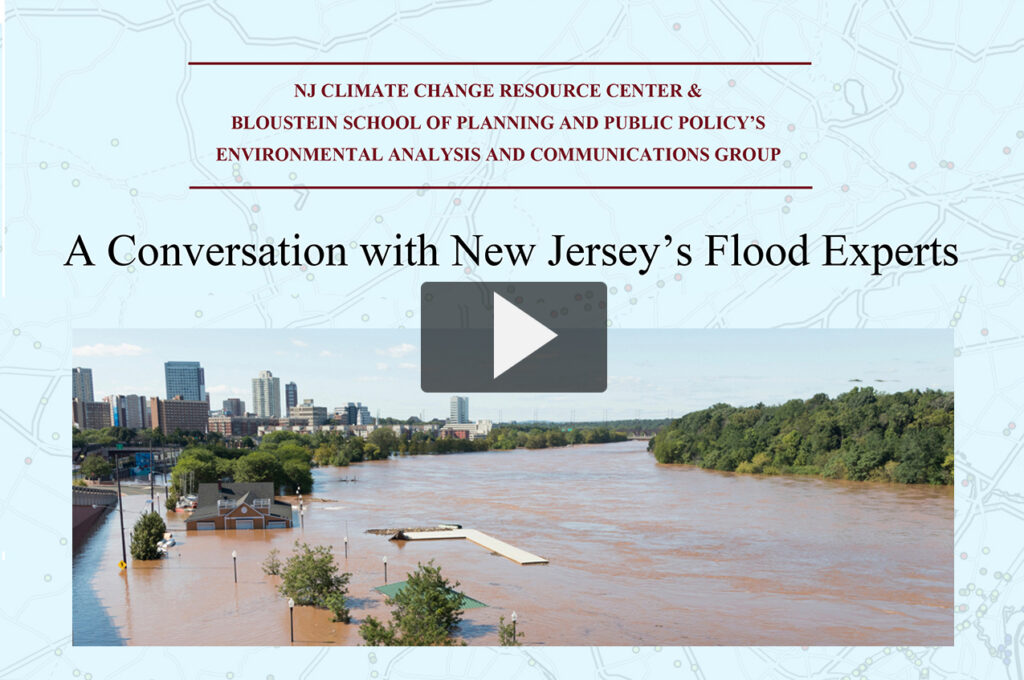
A Conversation with New Jersey’s Flood Experts
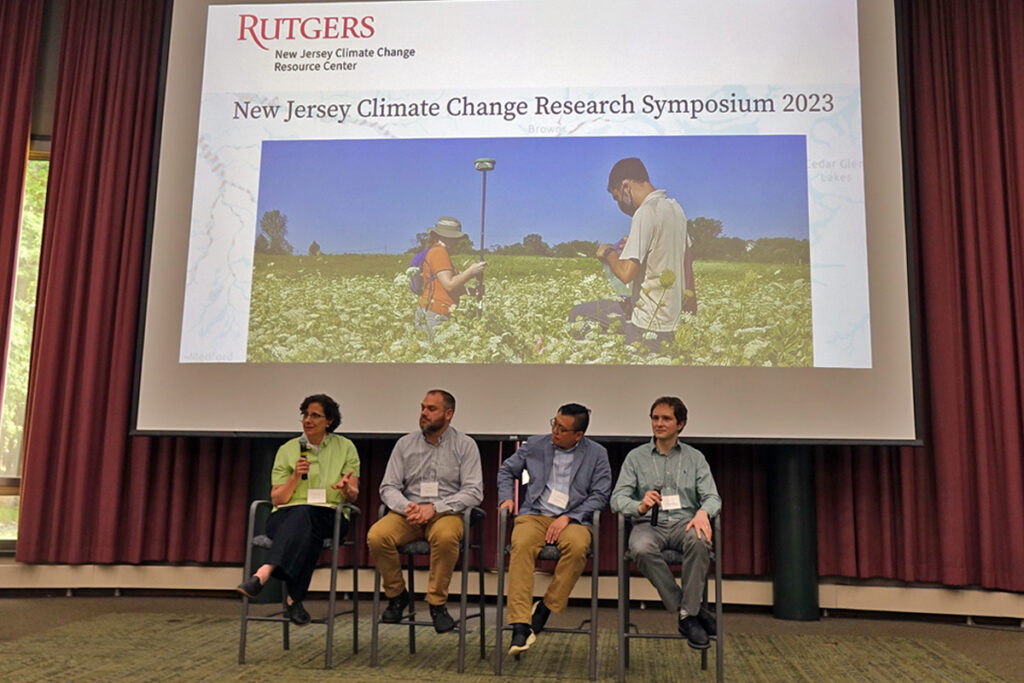
New Jersey Climate Change Research Symposium 2023
